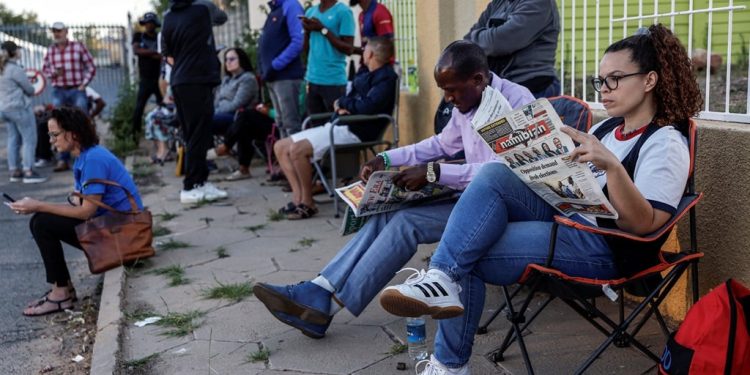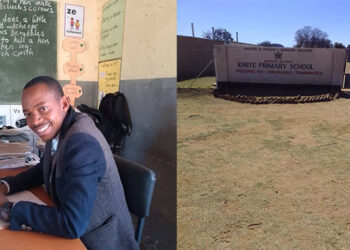Some voting stations will remain open until Saturday, the Electoral Commission of Namibia (ECN) said, as delays in Wednesday’s election angered the opposition even as vote counting continued.
Rivals accused SWAPO of trying to limit voting for the opposition.
The ECN said it had decided to keep 36 polling stations open on Friday and Saturday in response to the criticism.
All had been due to close by 21:00 on Wednesday.
It admitted to a range of problems, including a shortage of ballot papers in a higher than expected turnout and the overheating of tablets used to verify voters.
In some cases, torches used to show up invisible ink had run out of batteries and mobile voting teams had left areas with voters still in the queues, it said.
The main opposition Independent Patriots for Change (IPC) led calls for a halt in the process.
“We have a reason to believe that the ECN is deliberately suppressing voters and deliberately trying to frustrate voters from casting their vote,” said IPC official Christine Aochamus.
McHenry Venaani, leader of the largest opposition party in the outgoing assembly, said the commission “have taken this country to a precipice and now they think they can help it with two more days”.
The measures to extend voting “can’t just be in areas that are specified. It’s the whole country that did not vote,” the Popular Democratic Movement chief argued.
The smaller Namibia Economic Freedom Fighters party said it wanted the vote annulled.
“This election process was not free,” said representative Saddam Amushelelo. “We are not going to accept the election results.”
In the presidential vote, IPC leader, former dentist and lawyer Panduleni Itula, is perhaps the strongest challenger to SWAPO’s vice-president Netumbo Nandi-Ndaitwah, who could become the first woman to lead the country.
Analysts have said Nandi-Ndaitwah, 72, could be forced into a second round if she does not win more than half of votes.
The long queues were “a signal that people really want a change”, said Ndumba Kamwanyah, lecturer in the Department of Human Sciences at the University of Namibia.
“For me, it seems it’s not good news for the incumbent party,” he told AFP.
Some voters gave up after standing in line for hours in the sun and before voting was first extended on Wednesday night, said Maria Nambahu, who waited five hours to cast her ballot.
“It should have been better organised,” the 25-year-old said. “That makes it unfair.”
Edison Bernardo, a 25-year-old financial assistant, said there should be a re-run.
“People did not vote, many left the line,” he told AFP. “If this is the actual election, there will definitely be riots.”
While lauded for leading Namibia to independence, SWAPO is nervous about its standing after other liberation-era movements in the region have lost favour with young voters.
The Botswana Democratic Party was ousted after almost six decades in power after the ANC lost its majority.
Around 42% of Namibia’s registered voters were aged under 35, the election authority says.









